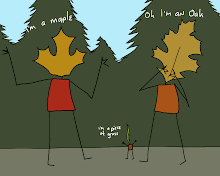Question: How much does band authenticity matter in today's underground music scenes? The U.S. Anarcho-Punk bands didn't seem to be viewed as sell-outs when they started making money off of their independent record labels. Would that still be the case today? Is a band selling out if they are making money off of their own, independent record label?
Monday, March 2, 2009
Gosling's "Not For Sale" Critical Review
Gosling, in his chapter in Music Scenes, discusses the development of Anarcho-Punk and the differences between the Anarcho-Punk scenes of the U.S. and the U.K. He makes is clear where this scene got its roots, regardless of whether it was the U.S. or the U.K. scene. He says that the "development of the underground punk scene was a reaction of disappointment with 'mainstream' punk, (p.168)" and that it was "rooted in a radical break from the capitalist logics of the major record companies. (p.180)" Even though both the U.S. scene and the U.K. scene were rooted in similar beginnings and ideas, the U.S. scene has managed to outlive the U.K. one and this is for a few reasons. Because of the U.S. ideology of the land of opportunity, Gosling feels that the members of the U.S. scene "appear to be socialized to expect to be able to exploit opportunities within the commercial world to advance their own distinctive goals. (p. 176)" This ideology is what led to U.S. Anarcho-Punk labels expanding their operations and surviving past the days of the bands they they started the label with. The U.K. is a land of class distinctions, and business was seen as a bad thing and one of the "cornerstones of the establishment, meaning exploitation and hierarchy. (p. 177)" This ideology led to many bands becoming embarrassed that they were getting some money from the labels they set up and it led to the eventual demise of these labels once the heyday of the bands that started them was up. Lastly, Gosling goes on to discuss the differences between the U.S. and U.K. scenes as viewed by fans. After checking some websites and interviewing people he concludes that for U.K. fans, political matters are a central positive point, whereas U.S. fans think that political matters could actually play a detrimental role and corrupt the authenticity of bands.
Subscribe to:
Post Comments (Atom)

No comments:
Post a Comment